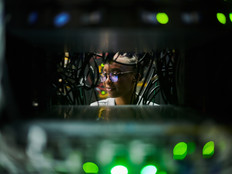Libraries Are Central to Local Government's Future Technology Plans
Public libraries have always been a communal center where citizens can access information and resources. But is that changing? Today, with more online resources available to the public, the assumption that the need for libraries has lessened through the years makes perfect sense.
Yet according to research from the Pew Charitable Trust, the challenging economic climate has actually increased demand for the services that libraries provide. It's here that people can search for jobs, obtain business services and connect online to obtain government benefits. Along with lending books (both printed and electronic) and DVDs, libraries have become a major provider of computer and Internet access and a place for community engagement.
That's especially true of the Cleveland Public Library's TechToyBox, which boasts tablet computers, e-readers, a 3D printer and other gadgets. The collaborative environment is so popular with patrons that the library doesn't have enough devices to meet demand, says CJ Lynce, a manager at the institution. The Cleveland Public Library also provides thin clients from which users can save their work to a cloud storage service.
In California, the Contra Costa County Library encourages reading through quick response (QR) codes. Deputy Librarian Cathy Sanford says the library launched a Snap & Go program with QR codes to direct users to other books they might enjoy, additional information and even audio books they can download to their smartphones. Such a solution is fast, easy and convenient, she notes. To learn about more exciting offerings from local libraries, read Libraries Use Tablets, QR Codes and RFID Technology to Bridge the Digital Divide.
Wi-Fi Redux
Drive by a library at night, and you might see cars parked outside so motorists can access free wireless service. Libraries do a tremendous job of bridging the digital divide, though municipalities also offer other means of getting broadband into the hands of residents.
While many of the public wireless initiatives of the past decade died on the vine with carrier troubles, several cities have recently followed through on launching free public Wi-Fi service. For example, Chicago has put out a large request for proposals, and the city of San Jose, Calif., is rolling out Ruckus Wireless access points in the downtown area. For the details about such Wi-Fi projects, read City of San Jose Launches Free Wi-Fi Network and Data Democracy: City-Sponsored Wi-Fi Is Growing in Speed and Popularity.








